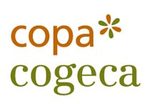|
|
| 06 nov 2019 |
18:03 |

|
The future of EU viticulture: how to make the EU success story last?
Today in Brussels, CEVI and Copa-Cogeca, who represent independent winegrowers, wineries and wine cooperatives, organised a workshop to present the current market situation and future trends, but most importantly to discuss how EU winegrowers are adapting in order to ensure a more sustainable viticulture.
|
|
The success story of the wine sector demonstrates what EU integration is capable of achieving: the whole sector benefitted substantially from a common legislative framework and a true European vision for its development. In the last two decades the trade balance increased by +275%, with a net profit of around 8 billion € in 2018. Quality also improved significantly, with 64% of wine now being produced under a geographical indication (44% PDO - 20% PGI). However, the sector is currently facing many new challenges that are likely to be more disrupting than anything the sector has ever witnessed.
EU winegrowers today have two main concerns: the deterioration of their economic situation due to the global economic downturn and shrinking profit margins, and – of course – climate change, which has already demonstrated its destructive potential. In the last years, great efforts have been made to enhance sustainability standards. However, if winegrowers are to respond to all of the new challenges, they have to continuously acquire new skills and think outside the box to find innovative solutions, while surviving in an increasingly global and volatile market.
During the workshop, a number of essential points were raised:
- The economic conditions of wine producers have been deteriorating over the past three marketing years in some productive areas, although wine keeps heading the agri-food exports. Prices are low, and the margins to producers are shrinking.
- The transition to a more sustainable production comes with a cost that cannot be carried by producers alone: consumers and retailers need to do their part, while public policies should provide leverage through investments and mitigate market imbalances.
The Chair of Copa-Cogeca’s Wine Working Party, Thierry Coste, underlined that “it is crucial that the EU keeps on supporting the sector with a strong CAP budget and that it helps further enhance its sustainability. The CAP’s legislative framework should ensure support and provide synergies with other funds so that our winegrowers can find new solutions and adapt to the changes.”
The wine sector remains optimistic, indicating that with the right support measures and a fair trade policy it can tap into new markets and sustain product innovation in reaction to new trends, such as more environmentally friendly products and wines lower in alcohol.
The President of CEVI, Thomas Montagne, pointed out that “diversity means innovation and resilience and it’s therefore crucial to maintain and improve the European model of viticulture, which is made up of a broad canvas of entities, small, medium and large winegrowers and cooperatives, which bring jobs and growth to the rural areas.”
The workshop ended with a wine tasting event, where, in partnership with Wine in Moderation, CEVI and Copa-Cogeca, the members had the opportunity to present their wines and their characteristics, as well as innovative practices.

|
|
|
|
